On February 19, 2022, China Biodiversity Conservation and Green Development Foundation (CBCGDF) established an Eco-civilisation Site at Yourantai in Xishuangbanna. Dr. Zhou Jinfeng, the Vice Chairman, conferred an official tablet to Mr.Gerard Burgermeisiter, director of the site. They held the first working meeting on the same day.
Yourantai, which is located on the banks of the Lancang (Mekong) River in Xishuangbanna’s capital, Jinghong, as a model of tropical rainforest ecological restoration and Neighbourhood Biodiversity Conservation (BCON). The mastermind behind Yourantai is long-term foreign resident of Jinhong, biologist andeconomist Mr. GERARD BURGERMEISTER, who was awarded a medal by Dr. Zhou in recognition of his achievement.
Yourantai is a magical place arising from its transformation from a rubber plantation into a tropical rainforest. It overlooks the Xishuangbanna Lancang (Mekong) River, about 600 meters above sea level. When Gerard and his wife Lynn settled in the area 18 years ago they found a very damaged ecosystem dominated by Brazilian rubber trees, few if any remaining indigenous plants, with a hardened and dried soil with a compromised fertility. There were very few birds, insects and lizards.
Gerard, also known as "Lao Bo" was the counsellor for environmental, economic and scientific cooperation at the Swiss Embassy in Beijing. In 2003, he came to Xishuangbanna and settled down in the area now known as Yourantai. Using his knowledge as a biologist, he removed most of the rubber trees (keeping a few of them where they could be useful for a few years, for instance to help stabilize a steep slope) and set out to restore the forest into a real tropical rainforest rich in biodiversity.
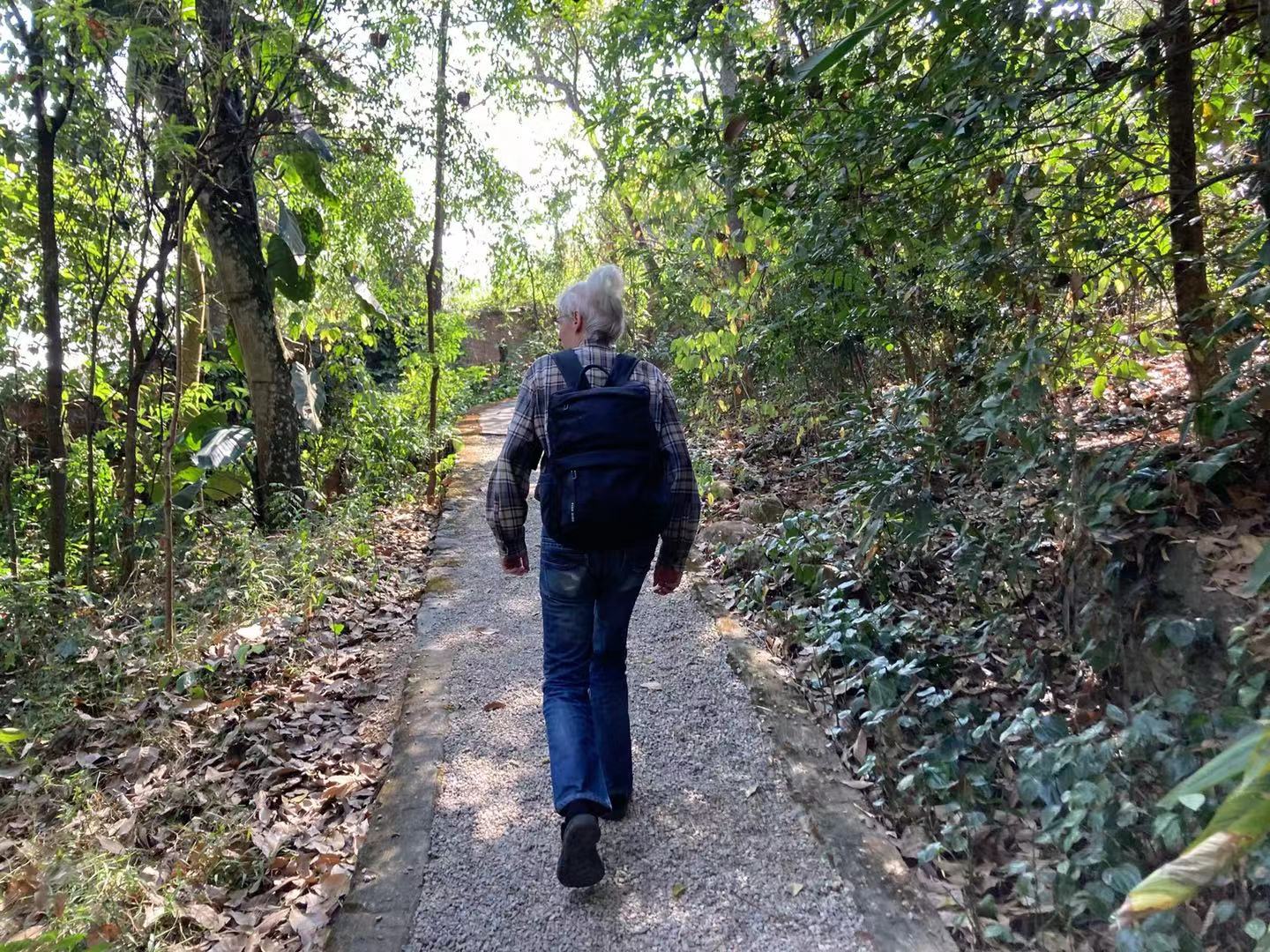
Today, in the tropical forest of Yourantai, in addition to countless smaller flowering plants, mosses, lichens and fungi, there are about 300 species of trees, and dozens of species of forest bird and small animals.
Through trial and error, and consultation with specialists, Lao Bo managed to prevent the regeneration and development of the rubber trees, and every year introduced new species of trees, many of them grown in his mini tree nursery from seeds collected in the local forests. The area gradually was transformed from a poor monoculture into a real forest full of diversity. With increased shadow and accumulation of leaves and dead wood, the soil moisture and fertility very slowly improved, with air humidity also increasing, allowing the return of insects such as fireflies and wild bees. Small animals such as bats, birds (including bee-eaters, night owls, many species of cuckoo), frogs, lizards and the large singing geckos all returned, in turn bringing many indigenous plant seeds which grew in great diversity and abundance.
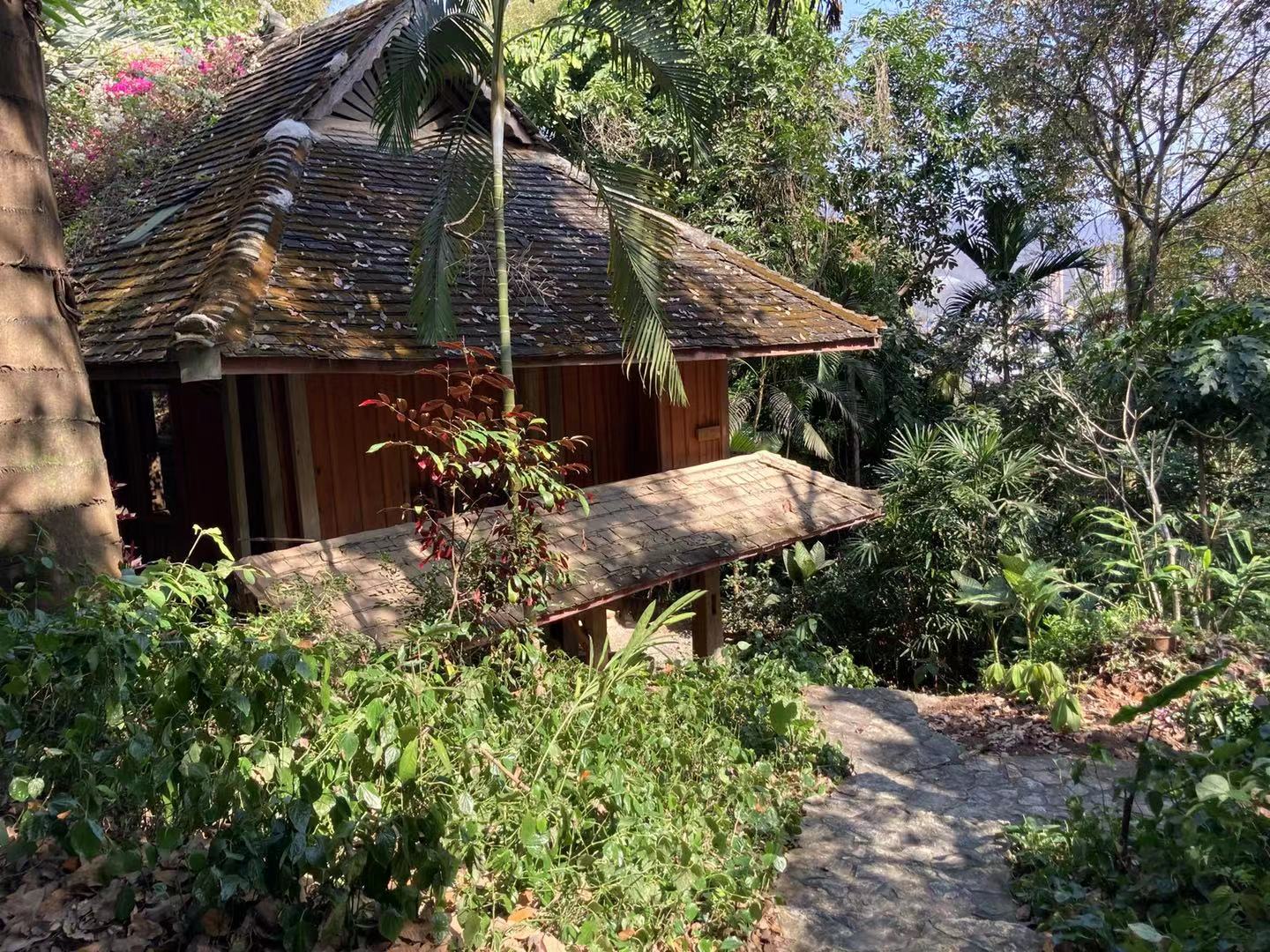
Today, the sad rubber plantation has been transformed into a spectacular and stable natural forest community, with 300 species of trees where previously there was only one, while other plants including shrubs, herbs, vines and epiphytes are also very much in evidence. A micro-climate is also developing with an average temperature significantly different from nearby Jinghong.
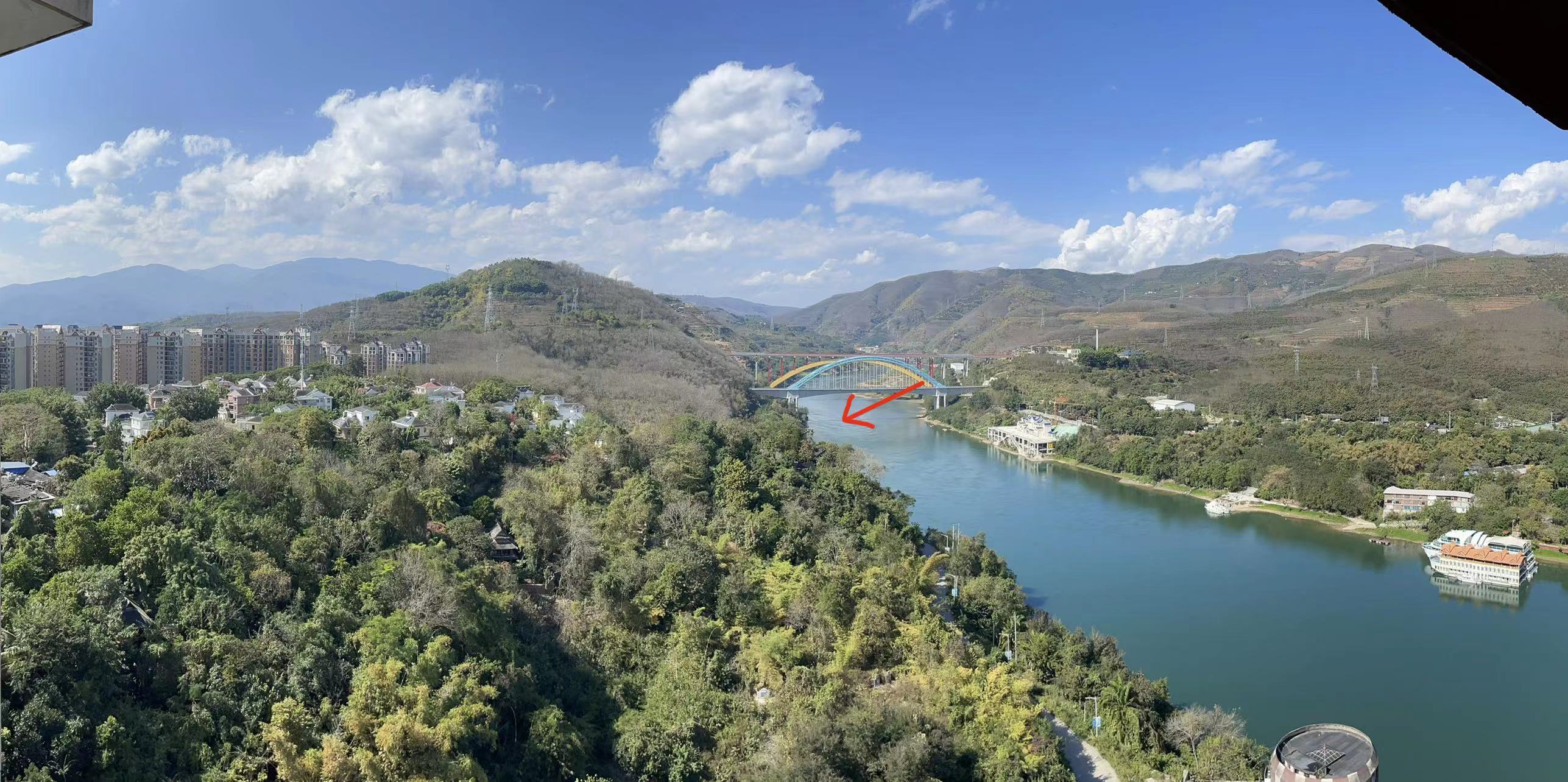
Yourantai however is not just a forest – it is a sustainable community – hence its significance as a model for BCON-style development. The forest supports an ecosystem that includes a local community, guests, and staff. The buildings that include several luxury houses for guests are mostly built with locally reclaimed hardwood from demolished minority Dai village houses, each with an open design, based on Dai traditions, adapted to the local climate. Recycled gravel cement floor tiles are also used for some terraces. Termite management (wood-eating termites are prevalent in the region) is based on the study of termites’ life- cycle and environmental preferences rather than on chemical-based solutions. The results have been surprisingly good: after 18 years of practice, there has been minimal termite damage and only minor repairs have been needed.
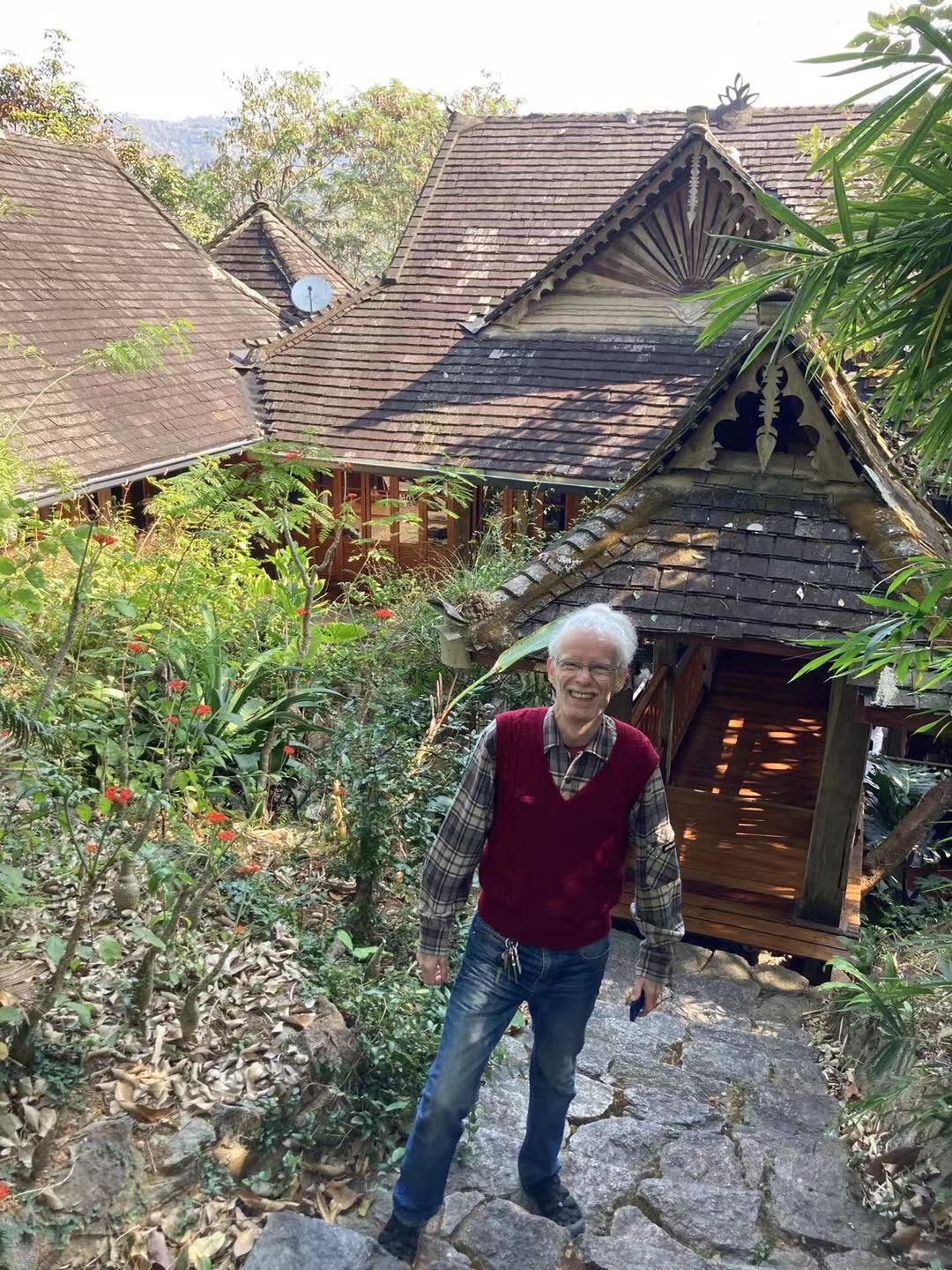
Water conservation and waste disposal are built into the management system, with three separate water disposal systems, for rain, for grey water (shower and hand washing) and for black water (toilets and kitchen). Only excess rain water is allowed to leave the premises. No black water is released into the river. All solid waste is sorted (kitchen waste for instance goes to compost) in order to minimize the amount sent out to the city garbage collection, thus contributing toward the business’s low environmental footprint.
The family-orientated guesthouse and associated businesses have been bringing in a sustainable income even during the pandemic, thus helping to support the economic wellbeing of the local staff and surrounding community. The business, in addition to the luxury guesthouse, provides guests with nature-oriented local hiking guides and contact with other interesting local sustainable businesses (pottery, brewery, coffee roasting, etc...), while also promoting and selling wild honey sustainably collected by farmers in the Xishuangbanna tea mountain forests. A mini orchard supports some organic fruit production (avocados, egg-fruits, limes, etc.) for guest consumption.
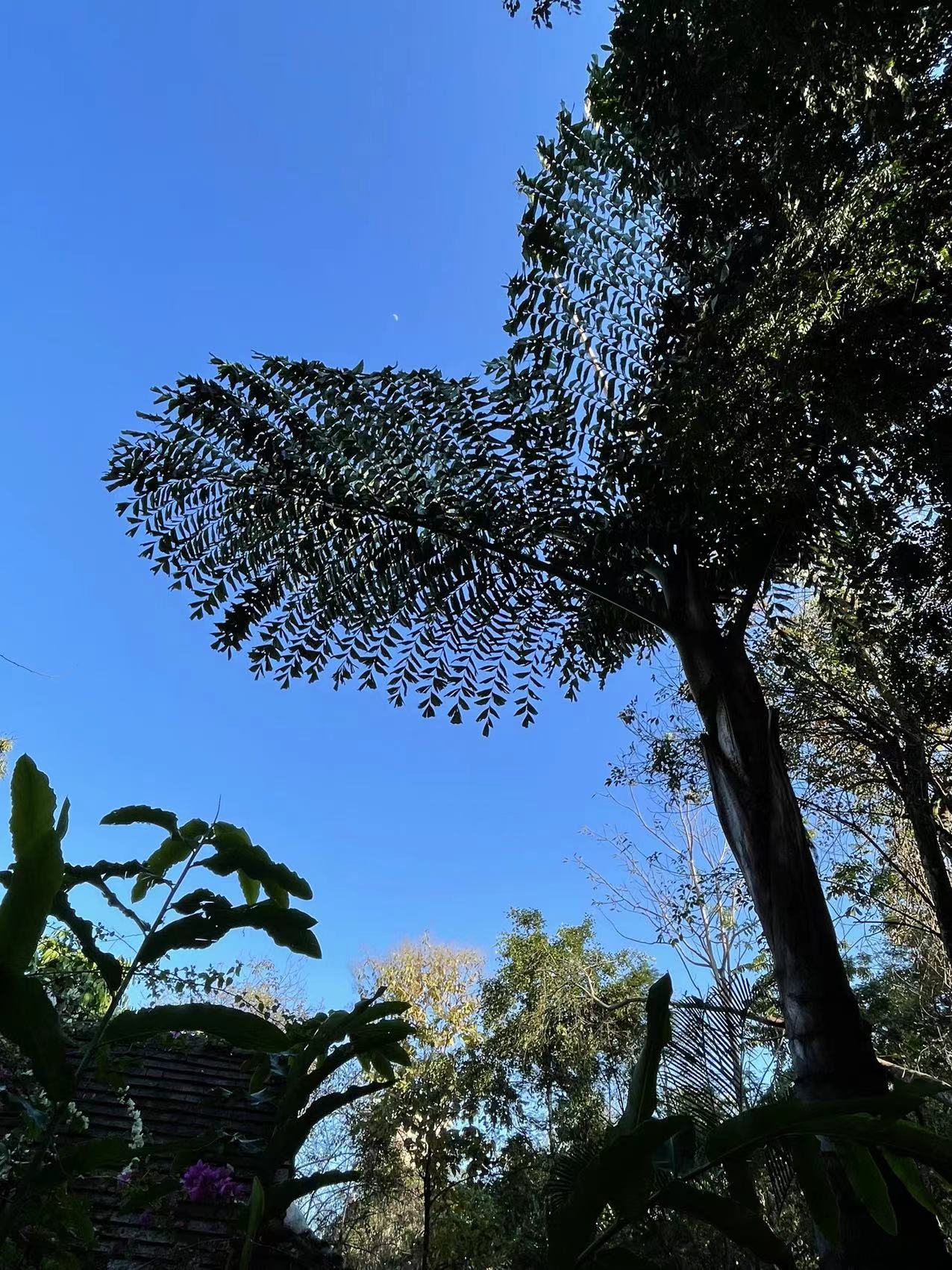
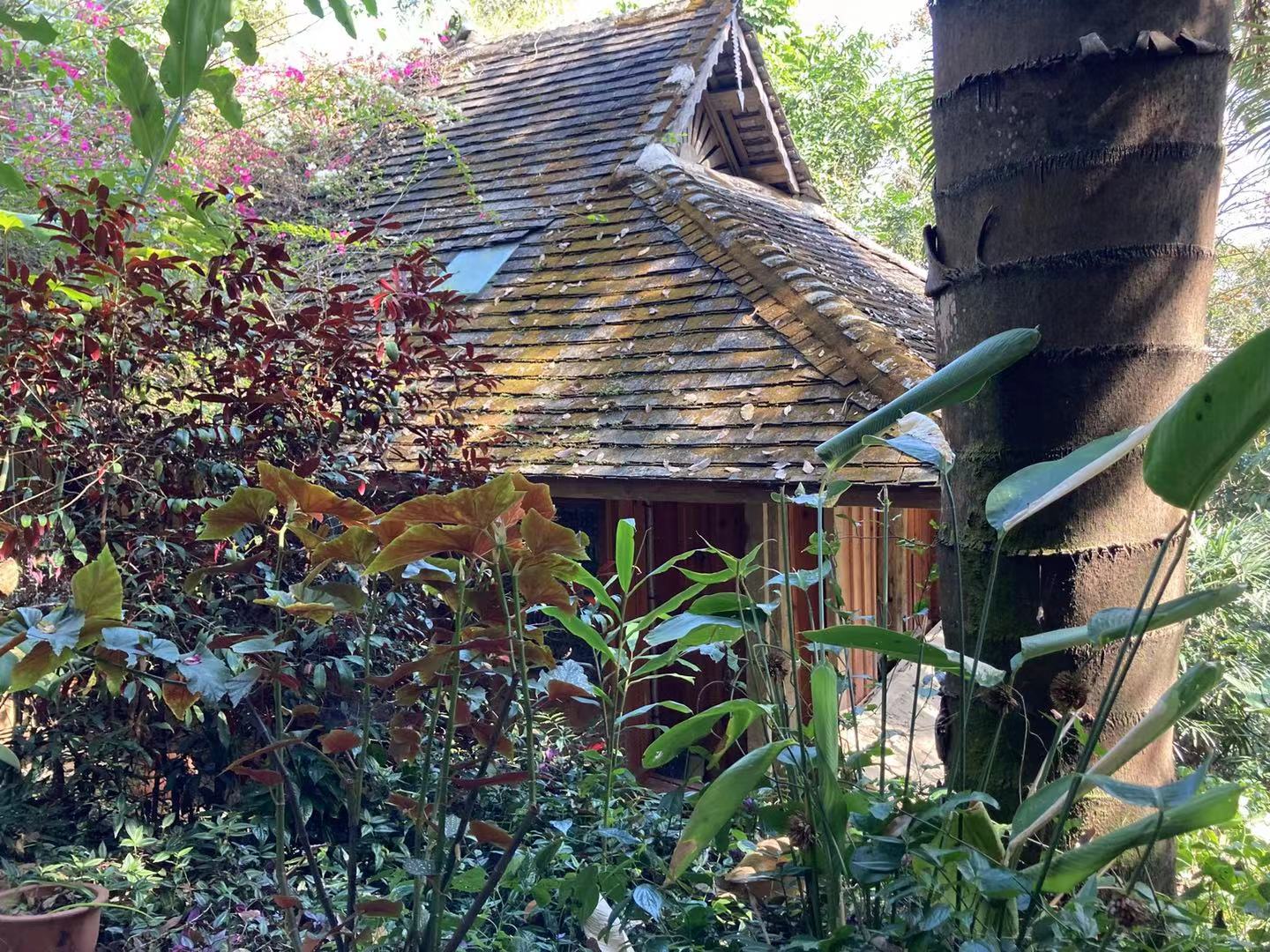
Dr. Zhou Jinfeng said that Yourantai is a proud example of what is possible - an achievement that China, as the host country of the fifteenth Conference of the Parties to the Convention on Biological Diversity (CBD COP15) in Yunnan, can show to the world. He encouraged Lao Bo to continue his efforts in ecological restoration, and make Yourantai a classic model for the "United Nations Decade of Ecosystem Restoration."
Original Chinese Article: https://wap.peopleapp.com/article/rmh26734224/rmh26734224
Translator: Maggie
Editor: Peter Corne
Contact: V10@cbcgdf.org; +8617319454776

Contribution
Do you know? CBCGDF is a non-profit organization. We rely on crowd-funding and donations. You have the opportunity to help us to advance biodiversity conservation. Donate TODAY to power up the movement to make it a better world for all life.
https://www.paypal.me/CBCGDFChina
http://www.cbcgdf.org/English/ConfirmDonaTion/0.html
